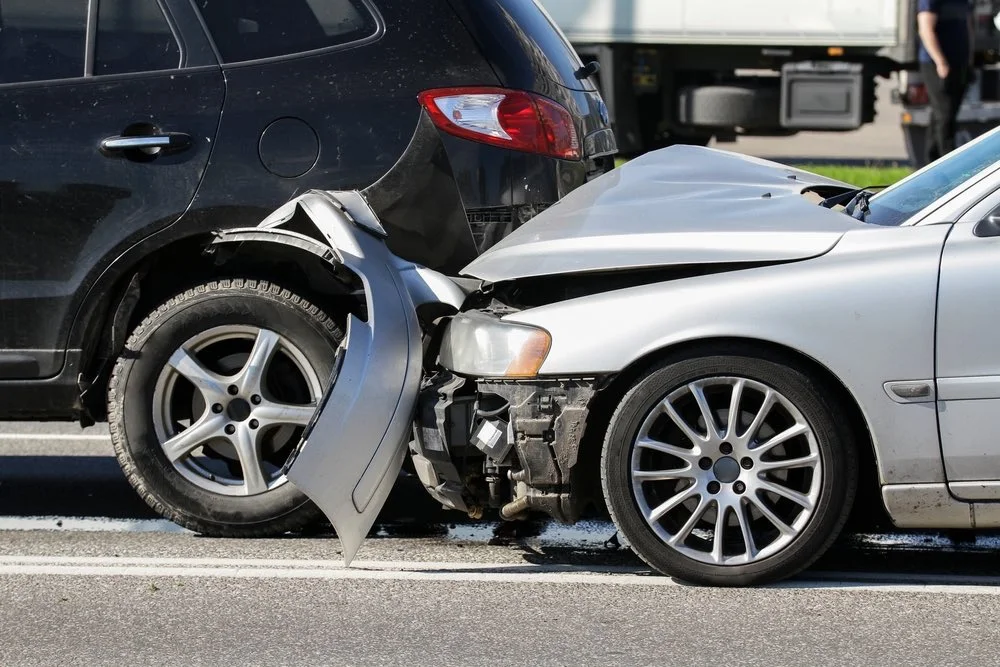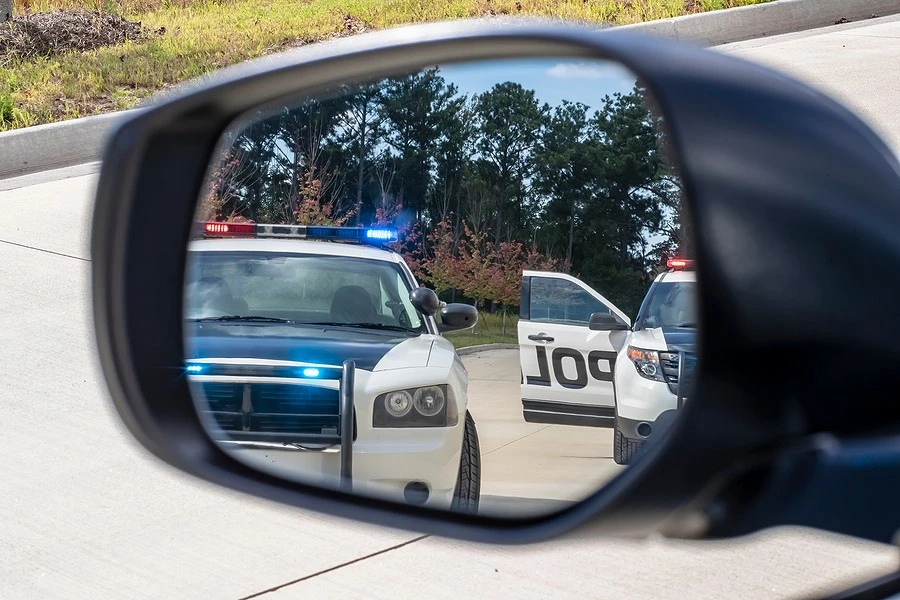What Are the Consequences of Leaving the Scene of a Crash?
Imagine being involved in a car accident, feeling panicked, and making the split-second decision to leave the scene. This decision can have serious legal consequences, impacting your life and finances in ways you never imagined. This guide will help you understand the legal definition and consequences of leaving the scene of a crash, your responsibilities as a driver, and the importance of having an experienced criminal defense attorney on your side. Knowledge is power, and knowing your rights and obligations can make all the difference in such a high-stakes situation.
Key Takeaways
- Understanding the legal definition of leaving the scene is important to avoid hit-and-run accident charges.
- Fleeing an accident can have serious consequences, including jail time and large fines.
- An experienced attorney can help defend against false accusations or negotiate a more lenient resolution for those charged with a hit and run offense.
Understanding the Legal Definition of Leaving the Scene

Leaving the scene of a crash, also known as “hit-and-run,” occurs when a driver fails to remain at the accident site and fulfill their legal responsibilities, such as exchanging information and rendering assistance. Yet, how is this offense legally defined and under what circumstances can a driver justify their departure from the accident scene?
In Florida, for instance, a medical emergency or fear of being assaulted in a road rage incident may justify a driver in leaving the scene of a car accident. However, drivers who depart from the accident scene without valid cause may be subject to severe repercussions such as:
- monetary fines
- imprisonment
- license revocation
- other penalties
This is particularly true when the accident results in significant property damage or bodily harm.
A hit-and-run conviction remains on a person’s record indefinitely, but if the charge is dismissed or the defendant is granted adjudication withheld, they may qualify to seal or expunge their case in Florida, potentially preserving their driver’s license. An experienced criminal defense attorney can help navigate these complexities and protect your rights.
The Driver’s Responsibilities After a Crash

After a motor vehicle crash in Florida, drivers must stop, exchange information, and render aid if necessary. Failing to do so can result in hit-and-run accident charges. But what does this entail in practice?
A driver involved in a crash must:
- Provide their name, address, and vehicle registration number to the other party
- Show his or her driver’s license upon request
- If the other party is injured, provide reasonable assistance, which may include calling for medical help or arranging transportation for the injured person to receive medical treatment.
Grasping and adhering to these responsibilities is vital, as neglect can result in grave legal consequences and have a negative impact on your life.
Evidence Required to Establish a Hit-and-Run Case

For prosecutors to successfully prove a hit-and-run case, they must present evidence that demonstrates the driver’s identity, willful act of leaving the scene, and the presence of damage or injury. This may include statements from a police officer who responded to the scene, witness testimonies, video footage, and physical evidence from the accident site.
To establish the driver’s identity under Florida law, the state must demonstrate that the driver:
- Departed the site of the accident
- Was the perpetrator of the accident
- Left the scene without providing written notice or contact information
- Caused damage or injury, including serious bodily injury
This may include evidence of the vehicle involved. The state must prove all of these elements to establish the driver’s identity.
Being aware of the evidence requirements for a hit-and-run case can facilitate a smoother navigation through the legal system and ensure the protection of your rights if you ever face such a circumstance.
Consequences of Fleeing the Accident Scene
In Florida, penalties for fleeing the accident scene vary depending on the severity of the damage or injury caused. Hit-and-run accidents involving only property damage are classified as a second degree misdemeanor. Potential penalties include jail time up to 60 days and a fine of $500..
If the accident results in personal injuries, the consequences become more severe. A hit-and-run resulting in personal injuries can be classified as a first-degree felony, leading to a maximum of 5 years in prison or 5 years of probation, as well as a $5,000 fine.
Leaving the scene of an accident resulting in injury or death may be punishable by up to five years in prison, up to five years of probation, and a fine of up to $5,000.
Evidently, the repercussions of fleeing the accident scene can drastically alter one’s life, thereby signifying the importance of comprehending and adhering to your legal obligations as a driver.
Potential Defenses Against Hit-and-Run Charges
Several defenses can be used to contest hit-and-run charges. For example, it may be possible to demonstrate that one of the elements of the crime did not occur, such as the property owner not being present or that the driver had a valid justification for leaving the scene. Providing evidence that the driver was not required to immediately stop or that they had a valid reason for leaving the scene can help protect their driver’s license.
In some cases, another driver may falsely accuse you of hit-and-run. In such situations, you would have a defense against the hit-and-run charge, and the other driver could face charges for filing a false accident report, potentially involving a property owner.
Additionally, prosecutors cannot charge you with hit-and-run if you lent your car to someone else who left the accident scene, but you may still be held responsible for any property damage caused. One should be aware that a passenger in the vehicle involved in the accident cannot be held liable for a hit-and-run.
An experienced attorney can help develop a strong defense strategy or negotiate a more lenient resolution, particularly in cases involving property damage.
Impact on Insurance Claims and Personal Injury Cases
Leaving the scene of an accident, even if not at fault, can have several negative consequences, including:
- Preventing compensation for the property owner
- Leading to increased insurance premiums
- Restricting recovery based on the driver’s insurance policy
- Potentially requiring claims on uninsured motorist coverage
It is important to stay at the scene of an accident and follow the necessary procedures to ensure a smooth insurance claim process and protect your rights.
In addition to the legal consequences of hit-and-run charges, the impact on insurance claims and personal injury cases can be financially devastating. This further emphasizes the need to comprehend your rights and responsibilities as a driver and to seek professional legal advice for accurate guidance.
How an Experienced Criminal Defense Attorney Can Help

Meltzer & Bell, P.A., a client-driven firm with over 1000 five-star reviews on Google, fights to clear their clients’ names and ensure their lives aren’t negatively impacted by hit-and-run charges. The team comprises former government lawyers, former major crimes public defenders, and former felony special unit prosecutors, giving them a unique advantage in understanding the legal system from multiple perspectives.
An experienced criminal defense attorney can provide insight into the charges you are facing and aid in constructing a sound defense. They can assess the charges, review the prosecution’s evidence, and formulate an appropriate defense, especially in cases involving property damage.
With their base in South Florida and a dedication to advocating for their clients, Meltzer & Bell, P.A. prioritizes exoneration of their clients’ names and preventing any negative impacts on their lives due to hit-and-run charges.
Real-Life Case Example: Hit-and-Run Charges Dropped
In a real-life case example, a client charged with hit-and-run after a minor collision involving property damage had their charges dropped thanks to the efforts of an experienced attorney. The attorney presented pertinent facts and prevented any detrimental statements, which helped address the property damage involved in the case.
This case underscores the significance of having competent legal representation when confronted with hit-and-run charges. With the appropriate legal representation, it is possible to safeguard your rights, maintain your reputation, and evade drastic consequences.
Summary
In conclusion, understanding the legal definition and consequences of leaving the scene of an accident is crucial for all drivers. Knowing your responsibilities, the potential penalties, and the impact on insurance claims and personal injury cases can help you make informed decisions and protect your rights. An experienced attorney, such as those at Meltzer & Bell, P.A., can be an invaluable ally in navigating the legal system and fighting for your future. Stay informed, know your rights, and drive safely.
Frequently Asked Questions
Why do drivers leave the scene of a crash?
Drivers often flee a crash scene out of fear, or because they have an outstanding warrant or are under the influence. Other reasons may include not having car insurance, driving an unregistered vehicle, or being in the process of committing another crime.
Can you go to jail for leaving the scene of an accident in Florida?
Leaving the scene of an accident in Florida can result in jail time of up to 60 days and a $500 fine.
When is it legally justified to leave the scene of an accident?
It is legally justified to leave the scene of an accident in the case of a medical emergency or fear of being assaulted.
What are the potential penalties for a hit-and-run involving only property damage?
Hit-and-run incidents involving property damage can result in up to 60 days in jail and a $500 fine, a second-degree misdemeanor.
Can a passenger in a vehicle involved in a hit-and-run be held accountable?
Passengers in a vehicle involved in a hit-and-run cannot be held accountable, as the driver is responsible for the vehicle.
